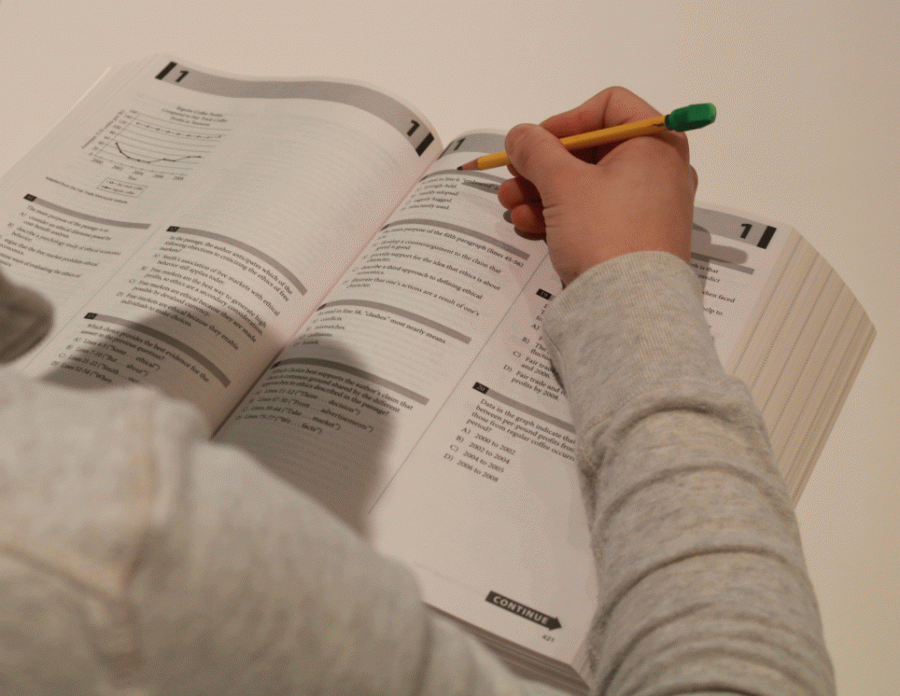Putting it to the Test
What are standardized tests actually measuring?
Photo: Anna Inghram
Standardized test scores, while required by most colleges in the United States, can be affected by factors that aren’t related to a student’s academic abilities or potential.
Senior Charlie Kauffman spent hours studying and attending tutoring sessions for college-related standardized tests and, ultimately, Kauffman thinks he got pretty good scores. But Kauffman doesn’t think his academic preparation is the only variable that contributed to his high scores.
“I think that I scored a little bit higher than I probably should have on some of the tests, and part of that’s because I guess I’m just good at sitting down and doing something for six hours,” Kauffman said.
University Prep seniors are busy working on completing and submitting applications to colleges. One element of college applications is a student’s standardized testing scores, namely SAT and ACT scores. Most colleges and universities consider test scores as part of their admissions process, but these scores may not be a meaningful indicator of a student’s academic potential.
For Associate Director of College Counseling Britten Nelson thinks one issue with the tests is that they don’t measure skills that would help a student achieve academic success.
“Creativity, work ethic, time management. Those are all skills that I think are required to be successful in college, not your ability to answer Algebra II questions quickly in a timed environment,” Nelson said.
One skill senior Sam Kim thinks affects standardized tests scores is a student’s test taking abilities.
“Some students are just not good test takers, but that doesn’t necessarily mean that they’re not as smart as other students that are doing well on standardized testing,” Kim said.
Another reason standardized test scores may not be indicative of a student’s academic abilities is that they can be strongly influenced by a student’s background and identity.
According to the College Board, there is a strong correlation between race and SAT scores, with white and Asian students tending to receive significantly higher scores than black and Latino students. Boys consistently score higher than girls on the math section of the SAT, and students who never used a fee waiver did better than students who did.
While a broad range of factors contribute to differences in scores across gender and race, according to the American Psychological Association, one reason students from certain backgrounds tend to perform worse than others is a phenomenon known as “stereotype threat.”
“There are stereotypes that say that girls and people of color are not as good in some areas of these tests as others,” Nelson said. “By simply acknowledging your demographic status, you may perform more poorly on that test.”
In addition to stereotype threat, a student’s cultural background can affect their ability to effectively prepare for standardized tests.
“Having parents who don’t know English that well, it’s kind of hard to prepare for an English section,” senior Azita Shirinzadeh said.
Though standardized tests can feel like an important part of the college process for many students, Shirinzadeh hopes that students and colleges understand that high schoolers are not defined by their test scores.
“I think that they should hold some significance, but I don’t think it’s everything about a person,” Shirinzadeh said.


